Strengthen health services

Strengthen health services
Case Studies
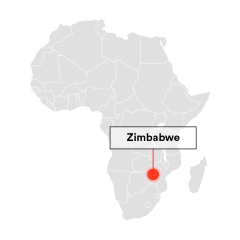
In Zimbabwe, the UN Trust Fund partnered with Family AIDS Caring Trust Zimbabwe, a women-led organisation dedicated to improving the lives of marginalised communities through health and poverty reduction interventions. The UN Trust Fund supported project “Voices from the Fringes” addresses violence against young women, adolescent girls and self-identified female sex workers, and works to promote their sexual and reproductive health and rights in five districts across Zimbabwe. Family AIDS Caring Trust reported that, of the 137 self-identified female sex workers with whom they worked, 98% reported that their sense of safety had increased since the project’s inception.


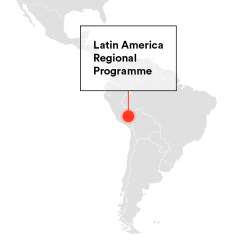
Through the Latin America Regional Programme, many countries in the region have made progress in strengthening the clinical management of sexual violence and intimate partner violence through virtual online courses co-designed and built with the ministries of health of 11 countries. Over 18,600 people have participated across six countries (Argentina, Costa Rica, Ecuador, El Salvador, Mexico and Peru) in these training sessions, strengthening their capacities to develop and deliver programmes that address violence against women and girls and specifically sexual violence and intimate partner violence.


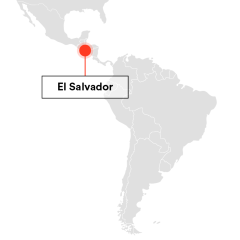
Spotlight Initiative in El Salvador has partnered with the Association of Transgender, Transexual and Transvestite Women to deliver rights-based and inclusive health services to the trans community. The programme strengthened capacities of the Dike+ Clinic, which provides access to low-cost medicine and medical and psychological health services to trans people. In providing unprecedented support to trans women organisations, the programme helped ensure all women have their needs considered, and opened a new window of opportunity for the trans population to champion their rights. Further, grants provided by Spotlight Initiative successfully supported efforts to enrol the Dike+ Clinic as a recognised Transgender Health and Sexual Medicine Clinic within the framework of the Superior Council for Public Health.


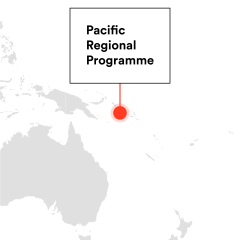
In 2022, the Spotlight Initiative Pacific Regional Programme supported Cookhouse Confidential, an informal group of women from multiple organisations and agencies that work together to discuss and tackle women’s menstrual health issues in the Republic of the Marshall Islands (RMI). Working together, Spotlight Initiative and Cookhouse Confidential administered small grants focused on efforts to advance sexual and reproductive health.
One such grant funded three women tailors in Ebeye, in the Marshall Islands, to produce reusable menstrual pads. These pads in turn were distributed to 250 sixth graders in Ebeye, Ebandon and Mejatto communities, along with menstrual and sexual and reproductive health education, promoting both the health and economic empowerment of women and girls. Another grant sponsored a medical team to deliver sexual and reproductive health awareness sessions and supported clinical check-ups for 63 women and girls in Ebon Atoll, providing remote services for individuals who would normally not have received health education or care. This focus on traditionally underserved populations is critical to ensure equity and reach (historically access to services for these populations has been limited).


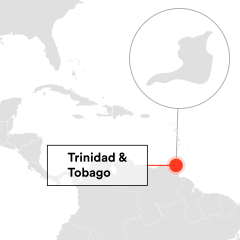
Spotlight Initiative in Trinidad and Tobago connected new domestic violence legislation with healthcare services. The programme produced the National Clinical and Policy Guidelines on Intimate Partner Violence and Sexual Violence, endorsed by the National Sexual, Reproductive, Maternal, Neonatal, Child and Adolescent Health Committee. The Guidelines help healthcare providers to respond to survivors’ physical, mental, and social needs and make sure they get appropriate follow-up care.
Quality and accessible data are critical to inform clinical and policy decision-making. Spotlight Initiative has helped develop a tool for clinical staff to gather information on health conditions and care provided to survivors of intimate partner violence (IPV) and sexual violence (SV). This health care form is available in paper or electronic format. The electronic form, part of the existing Perinatal Information System, is available to the Regional Health Authorities (RHAs) and enables users to generate reports indicating the quality of care provided. A manual and instructional video for use of the health care form have been developed.
With the Ministry of Health, work is ongoing with regional health authorities to adopt the guidelines. These guidelines are important because they provide a template through which significant improvements will be made in care and support to survivors through the healthcare system and referral pathways, such as to social services, housing and access to justice.







